Farmer’s Action For Sustainable Agro-Based Livelihood-2 (FASAL-2)
The Farmer’s Action for Sustainable Agro-Based Livelihood-2 (FASAL-2) project is an innovative initiative aimed at improving the livelihoods of 1,500 marginal farming households in the Naugarh Tehsil, Siddharthnagar District, Uttar Pradesh. The project focuses on empowering rural communities through sustainable agricultural practices, resource optimization, and community capacity building. By organizing farmers into 35 Self-Help Groups (SHGs) and 50 Farmer’s Clubs, FASAL-2 promotes collective action, economic resilience, and sustainable growth in the region.
Key Highlights:
- Target Area: 7 gram panchayats, including Ajgara, Hathiwartal, Fulwaria, Kudia, Bhitia, Kataki, and Tal Natawa.
- Target Families: 1,500 marginal farming households.
- Income Enhancement: Target of ₹25,000 annual income for 750 households and a 25% income increase for the remaining 750 households.
SS







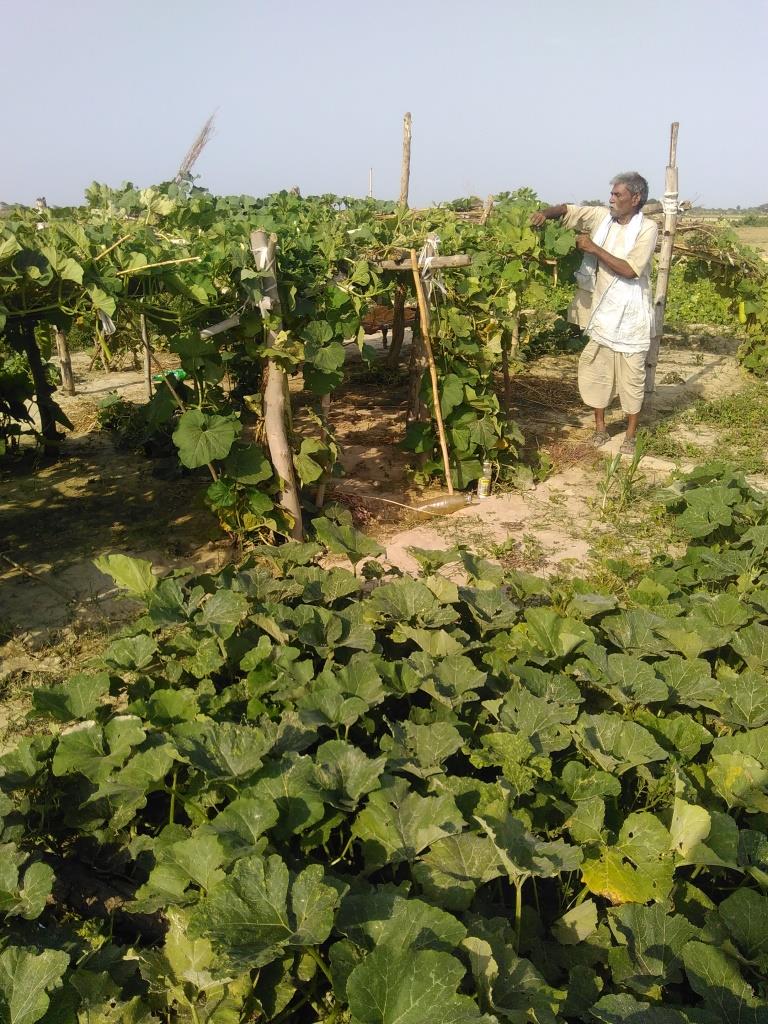
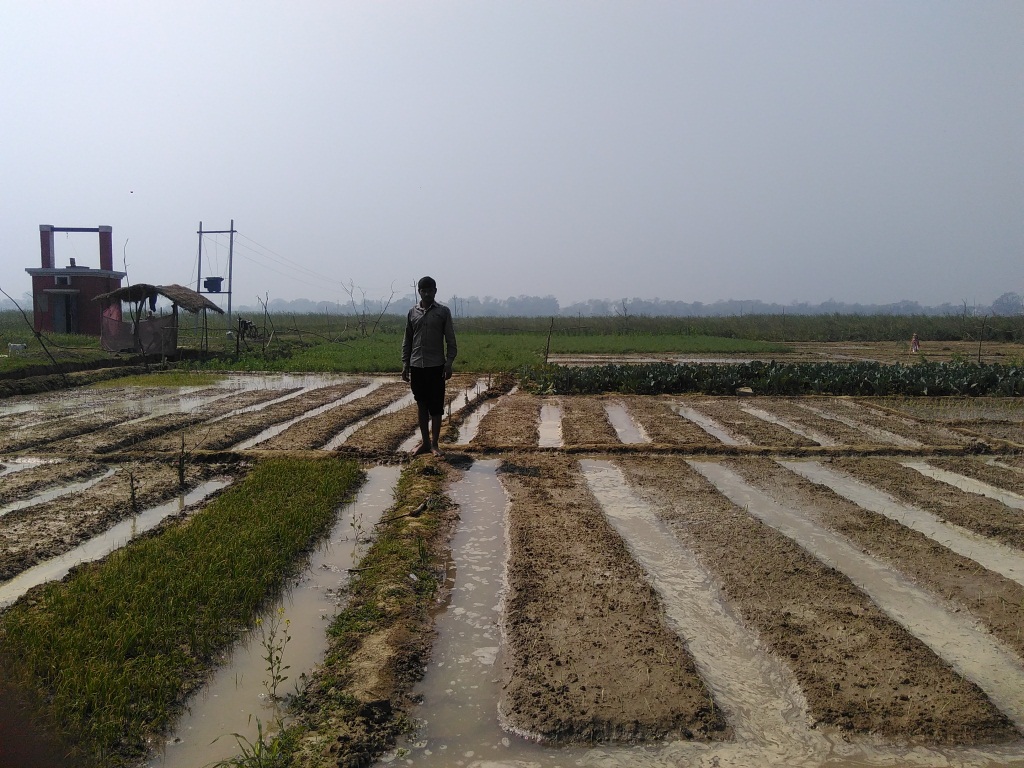

Project Details
- Project Name:
- Farmer’s Action For Sustainable Agro-Based Livelihood-2 (FASAL-2)
- Thematic Area:
- Agriculture, Livelihood
- Outcome:
- Enhanced livelihoods, food security, and sustainable farming practices for 1,500 households in Uttar Pradesh.
Funded By
- Funder Name:
- Sir Dorabji Tata Trust (SDTT) and HUF
- Implementing Body:
- Swabhiman Samiti
Implemented By
Work Place
- Place of Work:
- Siddharthnagar, Uttar Pradesh, India
- Year:
- 2015 - 2019
Project Overview
The Farmer’s Action for Sustainable Agro-Based Livelihood-2 (FASAL-2) project is a transformative initiative aimed at improving the livelihoods of 1,500 marginal farming households in the Naugarh Tehsil of Siddharthnagar District, Uttar Pradesh. The project spans seven gram panchayats, including Ajgara, Hathiwartal, Fulwaria, Kudia, Bhitia, Kataki, and Tal Natawa, and focuses on empowering the rural population through sustainable agricultural practices, community capacity building, and resource optimization. By organizing farmers into 35 Self-Help Groups (SHGs) and 50 Farmer’s Clubs, the project aims to foster collective action and promote economic resilience in the region.
Objectives
The primary objectives of the FASAL-2 project are:
- Improving Livelihoods: Enhance the livelihoods of 1,500 households in Siddharthnagar by promoting sustainable agricultural and allied practices.
- Income Enhancement: Increase the annual income of 750 households to 25,000 by the end of the project, with the remaining 750 households achieving a 25% income increase.
- Energy Alternatives: Reduce dependency on cattle dung (Kanda) for cooking fuel by 50% through composting and alternative energy sources.
- High-Value Crops: Promote high-value cropping systems to maximize returns from small landholdings.
- Community Empowerment: Strengthen community institutions and build the capacity of farmers to ensure sustained economic growth.
Background and Rationale
The FASAL-2 project targets farmers in Siddharthnagar, a region characterized by low agricultural productivity and inadequate access to resources. The rural population faces significant challenges including poor soil health, limited irrigation, and reliance on traditional farming methods. With small landholdings and low-income opportunities, many families rely on unsustainable practices. High migration rates, limited access to government schemes, and underdeveloped market systems further exacerbate the situation. The FASAL-2 project aims to address these challenges by introducing sustainable farming practices, promoting efficient resource use, and creating strong community institutions to ensure long-term growth.
Planned Outreach
The FASAL-2 project plans to reach:
- 1,500 households across 7 gram panchayats in the Naugarh Tehsil, Siddharthnagar District.
- The project will cover a variety of agricultural practices, from high-value crops to livestock management, benefiting the farming communities directly.
- 35 Self-Help Groups (SHGs) will be established, alongside 50 Farmer’s Clubs to foster collective action and enhance economic activities in the region.
Key Strategies
To achieve its objectives, FASAL-2 will adopt the following key strategies:
- Community Mobilization: Form SHGs and Farmer’s Clubs to organize farmers and facilitate collective action.
- Capacity Building: Provide technical training to farmers on modern and sustainable farming techniques.
- Resource Optimization: Promote efficient irrigation, composting, and energy alternatives to reduce environmental impact and improve resource use.
- Crop Diversification: Encourage the adoption of high-value cropping systems, such as pulses and vegetables, to increase farm income.
- Market Linkages: Build community federations to enhance market access and facilitate collective marketing for better financial returns.
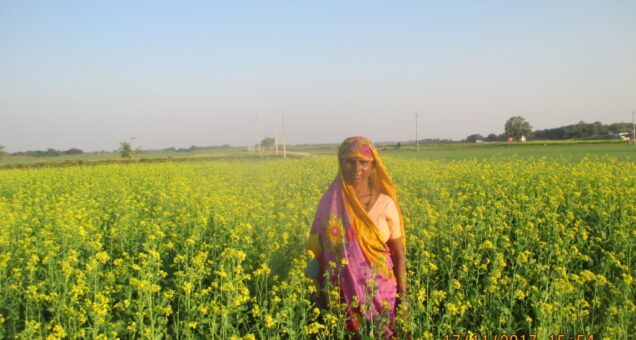
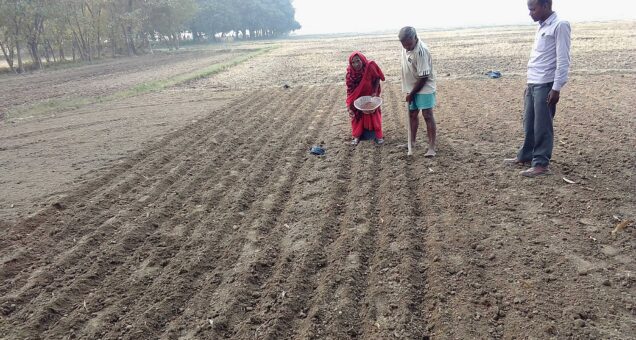
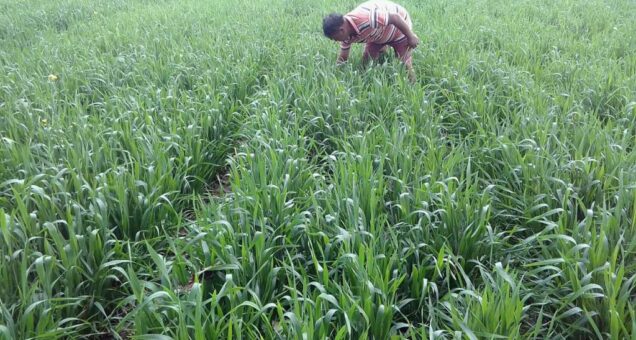
Core Activities
The core activities of the FASAL-2 project include:
- Promotion of High-Value Crops: Introduce high-value crops and demonstrate efficient irrigation practices to increase productivity.
- Introduction of Dhaincha Seed Production: Encourage seed production for dual purposes of firewood and soil enrichment.
- Pulse Crop Enhancement: Improve sowing techniques for pulses and increase productivity using modern farming practices.
- Backyard Gardens: Establish organic vegetable gardens for household nutrition and income generation.
- Training and Capacity Building: Regular technical training on sustainable agricultural practices and use of ICT tools for knowledge dissemination.
- Establishment of Farmer’s Clubs: Form Farmer’s Clubs to help organize local communities and facilitate resource-sharing and collective decision-making.
Achievements and Outcomes
By the end of the project, FASAL-2 aims to achieve the following outcomes:
- Income increase for 750 families to 25,000 annually, with the remaining families seeing a 25% rise in income.
- Introduction of high-value cropping systems, improving crop productivity and farm income.
- Reduced dependency on cattle dung for cooking fuel by 50%, promoting sustainable energy alternatives.
- Formation of 35 SHGs and 50 Farmer’s Clubs, enhancing community resilience and enabling collective action.
- Improved soil health and resource management through organic farming practices and efficient irrigation techniques.
Conclusion
The FASAL-2 project is a comprehensive approach to improving the livelihoods of farmers in Siddharthnagar through sustainable agricultural practices, community empowerment, and resource optimization. By focusing on high-value crops, enhancing farm productivity, and creating strong community institutions, the project aims to ensure long-term economic growth and environmental sustainability. The establishment of SHGs and Farmer’s Clubs will foster collective action, enabling farmers to adapt to changing conditions and drive their own development. With the support of SDTT and other donors, FASAL-2 will provide a scalable model for rural development, offering opportunities for replication in other regions facing similar challenges.
